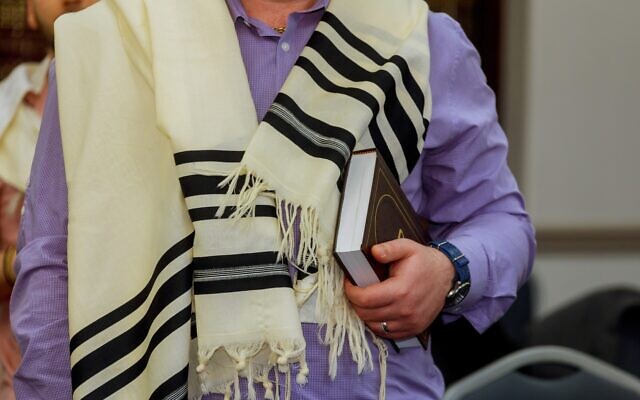Bad Jews unite and pray it forward!
THERE is a common attitude among different types of Jews that they aren’t worthy. People often humour me with self-deprecating statements like “Hi rabbi, I’m a bad Jew.”
This is one of many expressions of self-perceived inadequacy triggered by a host of different causes and I wish to highlight just three (while acknowledging there are many more): guilt, being judged and shame.
I too experience times where I feel second rate as a Jew. At times, I feel inadequate, either because of things said/done to me or because of my own vulnerabilities being highlighted in my internal monologue.
Besides the above ‘bad Jew’ example, I have noticed another expression of negative self-perspective and a sense of being a ‘second-rate’ Jew in comparison to someone who is more ‘religious’. I and many other rabbis receive requests to do a prayer for a loved one. While sometimes it is a collaborative request, more often than not it is from an assumed position of inferiority in the ‘eyes of God’.
But what makes someone think that a rabbi or a more ‘religious’ person has any more sway with God? A possible answer presented itself a few years back in a discussion in the dining hall of the Melbourne Business School at Melbourne University.
I was sitting with a group of beautiful people who were not of the Jewish faith and one remarked how a 25-year-old priest had been recently sent to his local parish. The cynical question was put to me: How was a 25-year-old more capable of connecting the 65-year-old storyteller to God? What great spiritual value did the priest possess?
At first, I nervously chuckled as I had been ordained as a rabbi at 21. What I discovered in our conversation was an important difference between Judaism and many other religions. In many traditions, one requires an intermediary, a priest-type character to connect to God – without the priest it’s just not possible.
Obviously, this attitude has filtered its way into Judaism and many of us believe that we too need a ‘priest’ to ‘beseech God’ on our behalf. This idea has been reinforced among many Jews by a misunderstood perception of the great Jewish spiritual leaders (often referred to as Rebbe, Chacham or Tzaddik). Judaism recognises the unique capabilities of specific people but this does not mean one can/should delegate prayer and connection.
We are all souls and a ‘part’ of Hashem, irrespective of dress code and level of religious observance. We all have the full attention of the Infinite Consciousness and all hold a unique value to Hashem. Religious observance is how we nurture and express that connection as well as fulfil our purpose, but it is not a status.
When one wants a prayer to be recited in a time of need, we should seek collaboration not delegation (and certainly not entertain the notion of being second rate or less significant).
The universe is governed by structure and there are methods to facilitate our conscious connection with Hashem. We all have the capacity to ask, thank, acknowledge and recognise Hashem’s involvement in our life, and the texts of tehillim (psalms) are a way to express those capacities.
The Book of Tehillim comprises 150 spiritual poems from the biblical era, composed by people who suffered and celebrated, who lived lives of power and fame as well as obscurity and challenge. What is common to all the authors is that they are spiritually gifted poets who were able to translate their experiences into prayer-filled poems, each poem varying in theme.
Stan and Debra Gordon live with tehillim, they realised that many of their friends and associates didn’t have a tehillim book or even know it existed, so they sponsored 1000 translated books of tehillim with the express desire to empower people to connect with tehillim. In a WhatsApp group conversation Rabbis Shlomo Nathanson (C Care), Moshe Loebenstein (Chabad Glen Eira), Yaakov Glasman (St Kilda Shule), Dovid Gutnick (East Melbourne Shule), Aharon Moss (Nefesh, Sydney), brand manager Shirley Bahar and myself used the Gordons’ initiative to create Pray It Forward.
PrayItForward.com.au provides meaning and explanation for tehillim and hosts a live peer-to-peer service where one can request a prayer to be read or fulfil a prayer request in real time and anonymously. The website provides information on how to receive tehillim, as well as how to participate in praying it forward.
Together, I ask you to join me in sharing the message of individual prayer and the message that we are all sacred and soulful. We can all help each other – rich or poor (in time, knowledge or money).
We all have the capacity and the spiritual ability. You and I are equal in this project.
Rabbi Menachem Wolf is director of Melbourne’s Spiritgrow Joseph Kryss Centre. For more information, visit prayitforward.com.au.


comments